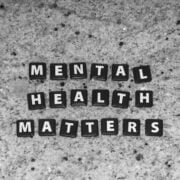
Understanding Medications for Mental Illness
This blog post explores the common treatment options for mental illnesses, focusing on the use of medications and how they work to improve symptoms.
Recovery is Possible
Receiving a diagnosis of a mental illness can be a daunting and overwhelming experience. However, it is essential to remember that recovery is not only possible but also achievable for most individuals. With the right treatment and support, individuals grappling with mental health challenges can go on to lead fulfilling and productive lives.
Treatment Options for Recovery
There are various effective treatment options available to aid in the recovery journey for those diagnosed with mental illnesses. Two primary forms of treatment that are commonly recommended are psychotherapy and medication.
1. Psychotherapy
Psychotherapy, also known as talk therapy, is a form of treatment where individuals work closely with a mental health professional to explore their thoughts, feelings, and behaviors. This therapeutic approach aims to help individuals understand their mental health condition better, develop coping strategies, and make positive changes in their lives.
During psychotherapy sessions, individuals may engage in different techniques such as cognitive-behavioral therapy (CBT), dialectical behavior therapy (DBT), or interpersonal therapy. These modalities are tailored to meet the unique needs of each individual and address specific mental health concerns.
2. Medication
Medications play a crucial role in the treatment of mental illnesses by helping to regulate brain activity and neurotransmitter levels. These medications target brain cells called neurons, influencing the communication within the brain and thus alleviating symptoms associated with mental health disorders.
It is important to note that the efficacy of medications can vary depending on the individual and the specific mental health condition being treated. Therefore, finding the right medication and dosage often requires close collaboration between the individual and their healthcare provider.
Understanding How Medications Work
Medications prescribed for mental health conditions work in diverse ways to address symptoms and promote recovery. One common mechanism of action involves targeting neurotransmitters, which are chemical messengers in the brain responsible for transmitting signals between neurons.
Let’s explore how medications interact with brain cells to regulate brain activity:
- Neurotransmitter Regulation: Certain medications act on neurotransmitters such as serotonin, dopamine, and norepinephrine to restore balance in the brain. By adjusting neurotransmitter levels, these medications can alleviate symptoms of depression, anxiety, and other mental health disorders.
- Neuroplasticity Promotion: Some medications promote neuroplasticity, which is the brain’s ability to adapt and reorganize neural connections. By enhancing neuroplasticity, these medications can support the brain in forming new pathways and facilitating recovery from mental health conditions.
- Receptor Blocking: Certain medications block receptors in the brain to modulate the transmission of signals. By blocking specific receptors, these medications can reduce the impact of stress hormones and other factors contributing to the symptoms of mental illnesses.
It is essential for individuals undergoing medication treatment to follow their healthcare provider’s guidance diligently. Adhering to prescribed dosages and attending regular follow-up appointments can optimize the effectiveness of medications and support the recovery process.
Embracing a Comprehensive Approach to Recovery
While psychotherapy and medication are valuable components of the recovery journey, it is important to adopt a holistic approach to mental health and well-being. Recovery goes beyond symptom management and involves fostering overall wellness in various aspects of life.
1. Self-Care Practices
Engaging in self-care practices can play a significant role in maintaining mental health and supporting recovery. Activities such as exercise, mindfulness, adequate sleep, and healthy nutrition can all contribute to a sense of well-being and resilience.
Self-care is not a luxury but a necessity, and integrating these practices into daily routines can enhance one’s ability to cope with challenges and sustain mental wellness.
2. Social Support Networks
Building and nurturing supportive relationships is another crucial element in the recovery process. Having a strong social support network can provide emotional encouragement, practical assistance, and a sense of belonging, all of which are vital for mental health recovery.
Connecting with friends, family members, support groups, or mental health professionals can offer valuable resources and companionship on the journey toward recovery.
3. Lifestyle Modifications
Making positive lifestyle changes can also contribute to long-term mental health and recovery. Avoiding harmful substances, managing stress effectively, setting realistic goals, and engaging in activities that bring joy and fulfillment can all foster emotional well-being.
It is essential for individuals to identify the lifestyle factors that support their mental health and incorporate them into their daily lives to promote sustainable recovery.
Recovery from mental illness is a multifaceted and individualized journey that requires dedication, support, and a comprehensive approach. By utilizing effective treatment options such as psychotherapy and medication, understanding how medications work on brain cells, and embracing a holistic recovery framework, individuals can navigate their path to healing and well-being.
Remember, recovery is not only possible – it is achievable, and with the right resources and mindset, individuals can thrive beyond their mental health challenges.
Types of Medications
Medications play a crucial role in treating various mental illnesses by targeting specific symptoms and underlying causes. Understanding the different types of medications available can help individuals make informed decisions about their treatment options. In this blog section, we will explore the various categories of medications used to treat mental health conditions.
Antidepressants
Antidepressants are commonly prescribed medications that are used to treat depression, anxiety disorders, and other mood disorders. These medications work by increasing the levels of certain chemical messengers, such as serotonin and norepinephrine, in the brain. By doing so, antidepressants can help regulate mood, reduce feelings of sadness and hopelessness, and improve overall well-being.
There are several classes of antidepressants, including:
- Selective Serotonin Reuptake Inhibitors (SSRIs): SSRIs are among the most commonly prescribed antidepressants and are known for their effectiveness in treating depression and anxiety disorders. Examples of SSRIs include fluoxetine (Prozac), sertraline (Zoloft), and escitalopram (Lexapro).
- Serotonin and Norepinephrine Reuptake Inhibitors (SNRIs): SNRIs work by increasing the levels of both serotonin and norepinephrine in the brain. Venlafaxine (Effexor) and duloxetine (Cymbalta) are examples of SNRIs.
- Tricyclic Antidepressants (TCAs): TCAs are an older class of antidepressants that are effective but may have more side effects compared to newer medications. Amitriptyline and imipramine are examples of TCAs.
- Monoamine Oxidase Inhibitors (MAOIs): MAOIs are typically used as a last resort due to their potential for serious side effects and interactions with certain foods and medications. Phenelzine and tranylcypromine are examples of MAOIs.
Other Medications
In addition to antidepressants, there are other types of medications used to treat mental health conditions. These medications may work in different ways or their mechanisms of action may not be fully understood. Some of these medications include:
- Antipsychotic Medications: Antipsychotics are primarily used to treat schizophrenia and other psychotic disorders. They work by altering the levels of dopamine and other neurotransmitters in the brain to reduce hallucinations, delusions, and other symptoms of psychosis.
- Mood Stabilizers: Mood stabilizers are commonly used to treat bipolar disorder by helping to regulate mood swings and prevent episodes of mania or depression. Lithium, valproate, and lamotrigine are examples of mood stabilizers.
- Anti-anxiety Medications: These medications, such as benzodiazepines and buspirone, are used to treat anxiety disorders by reducing feelings of anxiety and promoting relaxation. They work by targeting the neurotransmitters involved in the body’s stress response.
- Stimulants: Stimulant medications, such as methylphenidate (Ritalin) and amphetamine salts (Adderall), are commonly used to treat attention-deficit/hyperactivity disorder (ADHD) by improving focus, attention, and impulse control.
Common Mental Illnesses Treated
Medications are prescribed to treat a wide range of mental health conditions, with some of the most common ones being:
- Schizophrenia: Antipsychotic medications are the primary treatment for schizophrenia and are essential in managing symptoms such as hallucinations, delusions, and disorganized thinking.
- Bipolar Disorder: Mood stabilizers and antipsychotic medications are often used to stabilize mood and prevent manic or depressive episodes in individuals with bipolar disorder.
- Depression: Antidepressants are the mainstay of treatment for depression and are effective in alleviating symptoms such as persistent sadness, loss of interest, and changes in appetite or sleep.
- Anxiety Disorders: Anti-anxiety medications and antidepressants are used to manage symptoms of various anxiety disorders, including generalized anxiety disorder, panic disorder, and social anxiety disorder.
It is important to note that medication should always be prescribed and monitored by a qualified healthcare provider, such as a psychiatrist or primary care physician. Additionally, individuals should be informed about the potential side effects and risks associated with medications and engage in regular follow-up appointments to assess their progress and adjust their treatment plan as needed.
Overall, medications are valuable tools in the treatment of mental illnesses, and when used in conjunction with therapy and other forms of support, they can help individuals manage their symptoms, improve their quality of life, and work towards recovery.
Specific Medications for Different Disorders
When it comes to treating mental health disorders such as schizophrenia and bipolar disorder, specific medications play a crucial role in managing symptoms and improving the quality of life for individuals affected by these conditions. In this blog post, we will delve into the use of antipsychotic medications for schizophrenia, mood stabilizers for bipolar disorder, and the importance of following a healthcare professional’s guidance on medication usage.
Antipsychotic Medications for Schizophrenia
Schizophrenia is a chronic and severe mental disorder that affects how a person thinks, feels, and behaves. Antipsychotic medications are the primary treatment for schizophrenia and are aimed at reducing the intensity of symptoms such as hallucinations, delusions, and disordered thinking.
There are two main categories of antipsychotic medications: typical (first-generation) and atypical (second-generation) antipsychotics. Typical antipsychotics, such as haloperidol and chlorpromazine, are effective in treating positive symptoms of schizophrenia, such as hallucinations and delusions. However, they are associated with side effects such as extrapyramidal symptoms (EPS) and tardive dyskinesia.
On the other hand, atypical antipsychotics, such as risperidone and olanzapine, are newer medications that are effective in treating both positive and negative symptoms of schizophrenia. These medications have a lower risk of causing EPS but may be associated with weight gain and metabolic issues.
- Risperidone
- Olanzapine
- Quetiapine
- Aripiprazole
- Clozapine
It is important for individuals with schizophrenia to work closely with their healthcare provider to find the most effective medication with the fewest side effects. Regular monitoring and adjustments to the dosage may be necessary to ensure optimal treatment outcomes.
Mood Stabilizers for Bipolar Disorder
Bipolar disorder is a mental health condition characterized by extreme mood swings that include emotional highs (mania or hypomania) and lows (depression). Mood stabilizers are the cornerstone of treatment for bipolar disorder and are used to manage mood symptoms and prevent episodes of mania or depression.
Lithium is one of the oldest and most widely used mood stabilizers for bipolar disorder. It is effective in reducing the frequency and severity of manic episodes and has been shown to decrease the risk of suicide. However, regular blood tests are required to monitor lithium levels and kidney function due to the potential for toxicity.
In addition to lithium, other mood stabilizers such as valproate, carbamazepine, and lamotrigine are also commonly used in the treatment of bipolar disorder. These medications help stabilize mood fluctuations and may be used alone or in combination with other psychiatric drugs.
- Lithium
- Valproate
- Carbamazepine
- Lamotrigine
Individuals with bipolar disorder should be aware of the potential side effects of mood stabilizers, which may include weight gain, tremors, and gastrointestinal disturbances. It is essential to communicate any concerns or changes in symptoms to a healthcare provider to ensure proper management of the condition.
Importance of Following Healthcare Professional’s Guidance on Medication Usage
Whether prescribed antipsychotic medications for schizophrenia or mood stabilizers for bipolar disorder, it is crucial for individuals to follow their healthcare professional’s guidance on medication usage. Adhering to the prescribed dosage and schedule can help optimize the effectiveness of treatment and minimize the risk of adverse effects.
“Proper medication management is key to managing symptoms and improving the overall quality of life for individuals with mental health disorders.”
Here are some important points to keep in mind when it comes to medication usage:
- Take medications as prescribed by the healthcare provider without skipping doses.
- Be aware of potential side effects and report any concerns to the healthcare provider promptly.
- Do not abruptly discontinue medications without consulting a healthcare professional as it can lead to worsening of symptoms or withdrawal effects.
- Engage in open communication with the healthcare provider to discuss any changes in symptoms or treatment preferences.
By following the guidance of healthcare professionals and actively participating in the treatment plan, individuals with mental health disorders can better manage their condition and work towards improved mental well-being.
Key Considerations
When it comes to managing mental illnesses, medications can be an essential part of treatment. However, it’s crucial to approach medication management with care and attention to ensure effectiveness and safety. Here are some key considerations to keep in mind:
- Take medications as directed: It’s important to follow the prescribed dosage and schedule provided by your healthcare provider. Skipping doses or altering the schedule can impact the effectiveness of the medication.
- Do not stop without guidance: If you experience any concerns or wish to discontinue the medication, it’s vital to consult with your healthcare professional first. Abruptly stopping certain medications can lead to withdrawal symptoms or a relapse of symptoms.
- Discuss any questions or side effects: Communication with your healthcare team is key. If you have any questions about your medication or experience any side effects, be sure to raise them with your provider. They can offer guidance and potential solutions.
- Medications play a crucial role: In the management of mental illnesses, medications can significantly help in stabilizing symptoms and improving overall well-being. They work alongside therapy and other interventions to support recovery.
TL;DR
Properly adhering to medication guidelines, seeking advice before making any changes, discussing concerns with healthcare professionals, and understanding the vital role medications play in mental health management are critical aspects to consider.


















